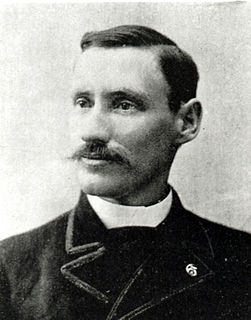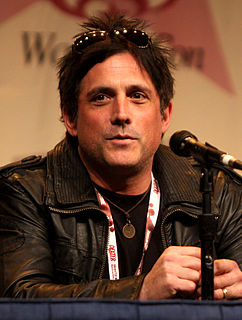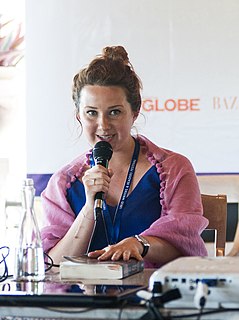A Quote by Dorothy Allison
If somebody gave you several thousand dollars and nothin' to do but write, would you be a writer then? Would you tell your stories, your family's stories, then?
Related Quotes
I have mostly been terrified of listening to scary stories around a campfire. We camp a lot as a family, and at night my dad would try and tell us scary stories. This made eating s'mores difficult. The story would start with something like... 'and the old man who lived in these woods...' I would then run back into the camper terrified.
I first studied to be a preacher, but decided that I was too prone to tell big stories. Then I studied Blackstone for a while and soon learned that I was not adept enough at prevarication to make a successful lawyer. I then made up my mind that I would seek some field where I could tell big stories and tell the truth.
I have always felt a little bit uncomfortable with question [why I'm write these stories]. It's not a question that you would ask a guy that writes detective stories or the guy that writes mystery stories, or westerns, or whatever. But it is asked of the writer of horror stories because it seems that there is something nasty about our love for horror stories, or boogies, ghosts and goblins, demons and devils.
Life is painful sometimes. It touches everyone, so you may as well try to look for other answers and find peace. So, it is difficult to write those types of things because nobody wants to tell sad stories. I think that I'll always tell stories about human hope. I would love to be able to tell somebody, "It's okay. It's all right. Be a good person." That's what my job is, in life.
Humans are kind of story-propagating creatures. If you think of how we spend our days, think of all the time you spend on entertainment. How much of your entertainment centers around stories? Most pieces of music tell stories. Even hanging out with your friends, you talk, you tell stories to each other. They're all stories. We live in stories.
If you want to be a writer, all you need is a piece of paper and a pencil, and I had a manual typewriter. It doesn't cost money to write. It costs money to make art. So I would just write. I would hand out stories in the classes in high school. And the teacher would say, "Whatever you do, don't become a writer."
Think of a book special to you, and how much bleaker and poorer your life would be if that one writer had not existed - if that one writer had not, a hundred times or a thousand, made the choice to write. You're going to be that one writer one day for somebody you may never meet. Nobody can write that book you're going to write - that book that will light up and change up a life - but you.






































